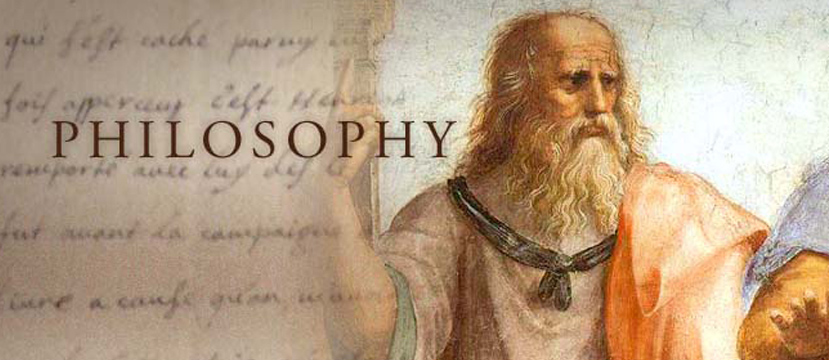
The use of reason in understanding such things as the nature of the real world and existence, the use and limits of knowledge, and the principles of moral judgment:
René Descartes is regarded as the founder of modern philosophy.
Cambridge Dictionary
Page Description
Explore key concepts and influential thinkers in philosophy.
Discover the study of existence, knowledge, and ethics.
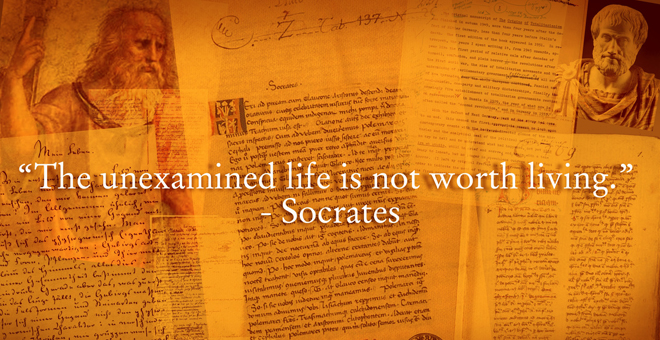
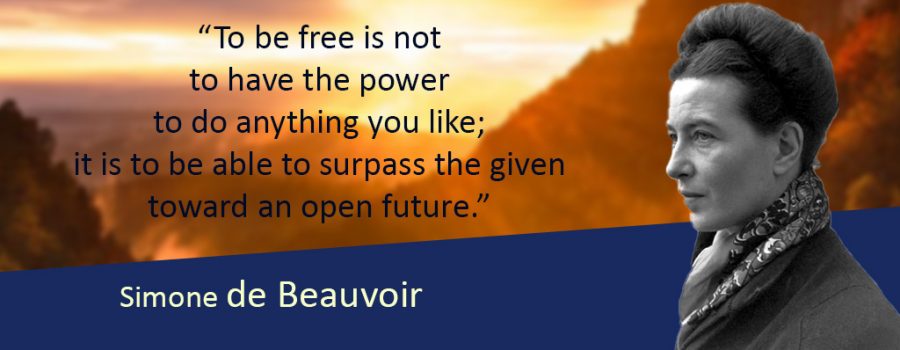
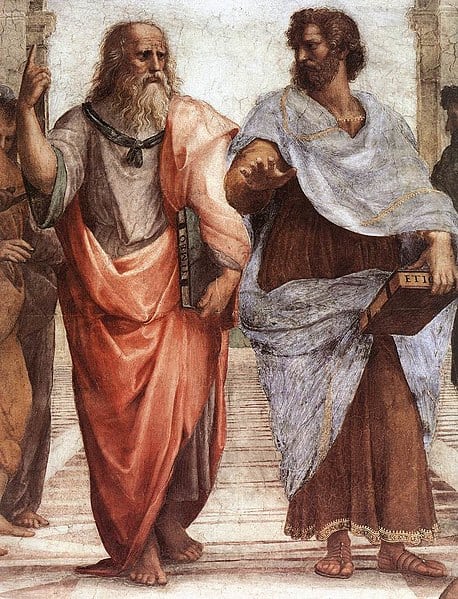
1 Wise Ancient Greek Philosophers Quotes to Make You a Better Person!
27 feb. 2020
2 What is Philosophy Full Documentary
20 jul. 2017
1 Michael Sandel – Para aprender a argumentar em grupo
1 mrt. 2016
2 V.O. “Today people only listen to opinions that reinforce what they already believe.” Michael Sandel
30 mrt. 2019
Transcript of the video above by Michael Sandel
One of the great and most debated issues of philosophy is whether ethics and the philosophy of morality itself they are merely a subjective matter of individual preferences and opinions. Or if some answers are right and others are wrong.
The fact that we have permanent debates, dating from the beginning of philosophy, leads some people to conclude that, whether great philosophers have debated these questions: justice, rights, well-being, morality and virtue. And they have been debating these issues for centuries, and still haven’t found an answer they agree with.
So, there may not be a right answer, maybe it’s just a matter of preferences and opinions. I do not believe that is a conclusion that we should take, because while it is true that such issues have been debated for a long time, it’s also true that we can’t stop thinking about them, and reflect on them, and try to come up with the right answer.
Whenever people get involved in debates about some serious ethical issue, or issue of justice, they presuppose the possibility that some answers are better than others. Otherwise, the debate would be meaningless if you stop to think. If all moral debates were merely subjective, then the debates would simply consist in the participants declaring their own subjective preferences. As if to say: “I like chocolate ice cream, and the other person likes vanilla”. But this is not the way we do it in ethical and moral discussions or debate. We’re not just declaring our favourite flavour of ice cream, or our opinion about the right way to live.
We are trying to persuade. We are trying to convey arguments that have the potential to persuade our interlocutor. This aspect of the moral debate, that it is invariably persuasive and involves dialogue, suggests that the possibility of better and worse responses should be presupposed by the activity of participating of a moral debate itself.
So, the way I teach and, even in books, the way I write about moral and political philosophy, it is not trying to offer a unique answer, as if I were a pastor. But I try to raise questions, set examples and tell stories that invite students, or readers, to think for themselves.
Not because I don’t think that some answers are better than others, but because I believe that the dialogue process and group argumentation is the only way to try to solve the difference between more or less persuasive reports of justice or well-being.
Een van de grote en meest bediscussieerde vraagstukken van de filosofie is de vraag of ethiek en de filosofie van de moraal zelf louter een subjectieve zaak zijn van individuele voorkeuren en meningen. Of dat sommige antwoorden juist zijn en andere onjuist.
Het feit dat er permanente debatten zijn, die dateren van het begin van de filosofie, brengt sommige mensen tot de conclusie dat grote filosofen over deze vragen hebben gedebatteerd: rechtvaardigheid, rechten, welzijn, moraal en deugd. En zij debatteren al eeuwen over deze kwesties en hebben nog steeds geen antwoord gevonden waar zij het mee eens zijn.
Dus misschien is er geen juist antwoord, misschien is het gewoon een kwestie van voorkeuren en meningen. Ik geloof niet dat we die conclusie moeten trekken, want het is waar dat over dergelijke kwesties al heel lang wordt gedebatteerd, maar het is ook waar dat we niet kunnen ophouden erover na te denken, en erover na te denken, en proberen het juiste antwoord te vinden.
Telkens wanneer mensen zich mengen in debatten over een ernstige ethische kwestie of een kwestie van rechtvaardigheid, veronderstellen zij de mogelijkheid dat sommige antwoorden beter zijn dan andere. Anders zou het debat zinloos zijn, als je er eens over nadenkt. Als alle morele debatten louter subjectief zouden zijn, dan zouden de debatten er gewoon uit bestaan dat de deelnemers hun eigen subjectieve voorkeuren verklaren. Alsof ze willen zeggen: “Ik hou van chocolade-ijs, en de andere persoon houdt van vanille”. Maar zo doen we dat niet in ethische en morele discussies of debatten. Wij verkondigen niet alleen onze favoriete ijssmaak, of onze mening over de juiste manier van leven.
We proberen te overtuigen. We proberen argumenten over te brengen die de potentie hebben om onze gesprekspartner te overtuigen. Dit aspect van het morele debat, dat altijd overtuigend is en dialoog impliceert, suggereert dat de mogelijkheid van betere en slechtere antwoorden verondersteld moet worden door de activiteit van het deelnemen aan een moreel debat zelf.
Dus, de manier waarop ik les geef en, zelfs in boeken, de manier waarop ik schrijf over morele en politieke filosofie, is niet proberen om een uniek antwoord te bieden, alsof ik een dominee ben. Maar ik probeer vragen op te werpen, voorbeelden te geven en verhalen te vertellen die studenten, of lezers, uitnodigen om zelf na te denken.
Niet omdat ik niet denk dat sommige antwoorden beter zijn dan andere, maar omdat ik geloof dat het dialoogproces en groepsargumentatie de enige manier is om te proberen het verschil op te lossen tussen meer of minder overtuigende berichten over rechtvaardigheid of welzijn.
3 V.O. Complete. Is Neymar worth more than a teacher? And other philosophical questions. M. Sandel
30 mrt. 2019
Michael Sandel is Professor of Political Philosophy at Harvard University and Princess of Asturias Award for Social Sciences 2018. Sandel’s goal is for philosophy to transcend classrooms, that’s why in the BBC series, “The Global Philosopher”, He leads video discussions with participants from more than 30 countries on the ethical aspects of issues such as immigration or climate change.
3 Being in the World (full, award winning, Hubert Dreyfus/Heidegger documentary)
17 jan. 2022
A celebration of human beings and our ability, through the mastery of physical, intellectual and creative skills, to find meaning in the world around us.
a film by Tao Ruspoli
Inspired by the work of Hubert Dreyfus & his reading of Martin Heidegger.
With Hubert Dreyfus, Ryan Cross, Sean D Kelly, Austin Peralta, Mark Wrathall, Iain Thomson, Leah Chase, Manuel Molina,Tony Austin, John Haugeland, Taylor Carman, HIroshi Sakaguchi, Jumane Smith.
“”Being in the World” is a film that educates one through both the senses and the intellect and, by its end, it provides a powerful but gentle reminder that we, the individuals, must take back our rightful place at the center of philosophy and we do so everyday simply by being in the world. Instead of a narrative or a series of long lectures, we are taken on a ride to visit various practitioners of the arts— primarily musicians—who simply “do” their art. These vignettes are juxtaposed with a series of philosophers, most of whom seem connected in terms of their ideas and interpretations of the German philosopher Martin Heidegger, who talk about the idea of “being in the world.” I found this back-and-forth composition created a certain fluidity thanks to the way the information delivered both tickled my senses and intellect in equal measure. By the end, the aforementioned message slowly sank in and that is what created what is now a genuine appreciation for having viewed the film because I look at my life experience differently.
First of all, this work does not require any special education or training to be understood and enjoyed, although I don’t think many would argue that the subject matter alone would unfortunately dissuade many simply because that is the nature of society but the fact that the average citizen is not interested in philosophy, or course, is no fault of the film. Ironically, the very message that one doesn’t need to be steeped in philosophy to undertake and enjoy a life rife with meaning is one of the primary themes of the film. This theme might be summed up by stating that by simply “being in the world,” we surpass all of the formalized activities associated with what engaging in “philosophy” has come to mean in the modern western world.
Although we’re never hit over the head with it, it is the German philosopher Martin Heidegger who stands firmly at the center of the film as it is his iconoclastic work which inspires the ideas that undergird the messages of the various speakers. The fact that Heidegger’s work is infamous for being difficult to approach even for the initiated student of philosophy is what makes this film such a gem; the more I think about the film the wider I grin because I can see more clearly how what I initially mistook for an aesthetically pleasing ride with a dose of didacticism ended up being a “reeducation” regarding how important simply “being in the world” and performing our “art” (which I take to mean profession, hobbies, etc.) is in terms of understanding where philosophy has taken us collectively.
“Being in the World” is a small film. Although the film is beautifully composed and we move around the globe, it is obvious that this was accomplished with a comparatively small budget and for me this only adds to the sense of intimacy and trust the work exudes; this is a labor of love, an authentic work of art, and it was created in order to share a message far removed from the commercial world.
It was the feeling with which I was left, however, that sets this movie apart from other, similar films. Walking away from this I felt encouraged and valued by the filmmaker and the “players.” Rather than some stale exposition or preachy sermon about why I should change my mind about my life based on some epistemological tendency, I was reminded that my being in the world is what constitutes my life’s meaning.”
4 How philosophy can save your life | Jules Evans | TEDxBreda
9 nov. 2013
5 Why study philosophy?
9 okt 2018
Why study philosophy? Drawing on a favorite story (from a cookbook!) John Corvino offers a multitude of reasons.
Dr. John Corvino is a speaker, writer, philosophy professor, and Dean of the Irvin D. Reid Honors College at Wayne State University in Detroit. Read more at http://JohnCorvino.com.
John Corvino’s Better Argument series was filmed at Wayne State University by James Wright and Mayabeth Jagosz, with funding from the American Philosophical Association.
6 mrt. 2014
Philosophy CPT
6 What Great Philosophers Can Teach Us About How to Live: Alain de Botton (2000)
Back to menu IMPORTANT CONTENT
11 dec. 2016
He co-founded the School of Life in 2008 and Living Architecture in 2009. In 2015, he was awarded “The Fellowship of Schopenhauer”, an annual writers award from the Melbourne Writers Festival, for this work.
Source: Wikipedia
Uploaded for educational purposes only.
3 mrt. 2015
In Consolations, de Botton attempts to console the reader through everyday problems (or at least help them to understand them) by extensively quoting and interpreting a number of philosophers. About the book: https://www.amazon.com/gp/product/067…
These are categorised in a number of chapters with one philosopher used in each.
Consolation for Unpopularity (Socrates)
Consolation for Not Having Enough Money (Epicurus)
Consolation for Frustration (Seneca)
Consolation for Inadequacy (Montaigne)
Consolation for a Broken Heart (Schopenhauer)
Consolation for Difficulties (Nietzsche)
The critical reception for Consolations has been primarily positive. A few critics have been negative. Edward Skidelsky of the New Statesman wrote: “Comforting, but meaningless. In seeking to popularise philosophy, Alain de Botton has merely trivialised it, smoothing the discipline into a series of silly sound bites. … [De Botton’s The Consolations of Philosophy] is bad because the conception of philosophy that it promotes is a decadent one, and can only mislead readers as to the true nature of the discipline.”
Jonathan Lear, writing in the New York Times said: “Academic philosophy in the United States has virtually abandoned the attempt to speak to the culture at large, but philosophy professors are doing something of incredible importance: they are trying to get things right. That is the thread that connects them back to Socrates — even if they are not willing to follow him into the marketplace — and that is the thread that The Consolations of Philosophy cuts. …[L]et’s face it, this isn’t philosophy.”
Mary Margaret McCabe stated in the Times Literary Supplement: “In the culture of the market economy, we miss the fact that philosophy is valuable in and by itself…. It is deeply dispiriting, then, that the latest attempt to popularize philosophy [De Botton’s The Consolations of Philosophy] – that is to say, to make philosophy into televisual fodder – does so precisely on the basis that philosophers can provide us with useful tips…. This is not the dumbing down of philosophy, it is a dumbing out. Nothing in this travesty deserves its title; Boethius must be turning in his grave.”
The book was the inspiration for the Channel 4 TV series Philosophy: A Guide To Happiness. The series was produced mirroring the book’s layout with the following six episodes:
Socrates on Self-Confidence
Epicurus on Happiness
Seneca on Anger
Montaigne on Self-Esteem
Schopenhauer on Love
Nietzsche on Hardship
http://en.wikipedia.org/wiki/The_Cons…
Michel Eyquem de Montaigne (/mɒnˈteɪn/; French: [miʃɛl ekɛm də mɔ̃tɛɲ]; 28 February 1533 – 13 September 1592) was one of the most influential philosophers of the French Renaissance, known for popularizing the essay as a literary genre. He became famous for his effortless ability to merge serious intellectual exercises with casual anecdotes and autobiography—and his massive volume Essais (translated literally as “Attempts” or “Trials”) contains, to this day, some of the most influential essays ever written. Montaigne had a direct influence on writers all over the world, including René Descartes, Blaise Pascal, Jean-Jacques Rousseau, Albert Hirschman, William Hazlitt, Ralph Waldo Emerson, Friedrich Nietzsche, Stefan Zweig, Eric Hoffer, Isaac Asimov, and possibly on the later works of William Shakespeare.
http://en.wikipedia.org/wiki/Michel_d…
Arthur Schopenhauer (German: [ˈaʁtʊʁ ˈʃɔpənˌhaʊ̯ɐ]; 22 February 1788 – 21 September 1860) was a German philosopher best known for his book, The World as Will and Representation (German: Die Welt als Wille und Vorstellung), in which he claimed that our world is driven by a continually dissatisfied will, continually seeking satisfaction. Influenced by Eastern philosophy, he maintained that the “truth was recognized by the sages of India”; consequently, his solutions to suffering were similar to those of Vedantic and Buddhist thinkers (e.g., asceticism). The influence of “transcendental ideality” led him to choose atheism.
At age 25, he published his doctoral dissertation, On the Fourfold Root of the Principle of Sufficient Reason, which examined the four distinct aspects of experience in the phenomenal world; consequently, he has been influential in the history of phenomenology. He has influenced many thinkers, including Friedrich Nietzsche, Richard Wagner, Ludwig Wittgenstein, Erwin Schrödinger, Albert Einstein, Sigmund Freud, Otto Rank, Carl Jung, Joseph Campbell, Leo Tolstoy, Thomas Mann, and Jorge Luis Borges, among others.
http://en.wikipedia.org/wiki/Arthur_S…
IMPORTANT CONTENT
7 Philosophy in One Lecture
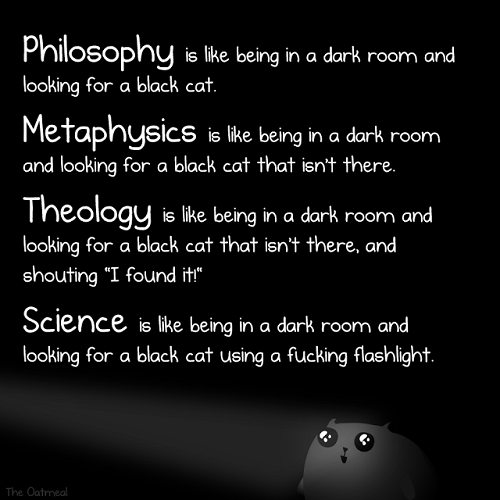
8 A History of Philosophy | 01 The Beginning of Greek Philosophy
9 A History of Philosophy | 02 The Moral Universe in the Pre-Socractics
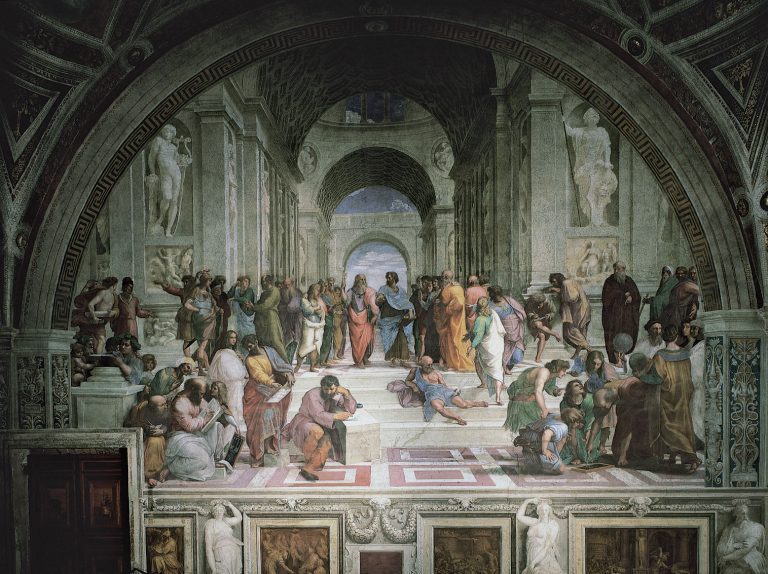
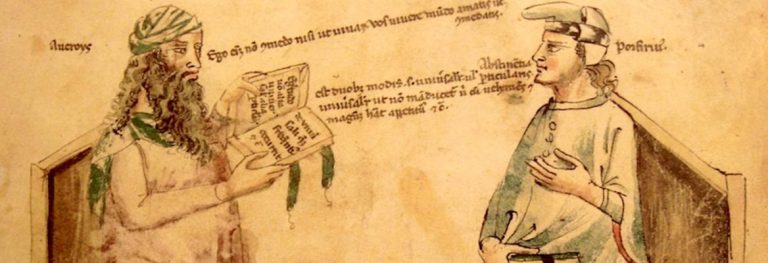
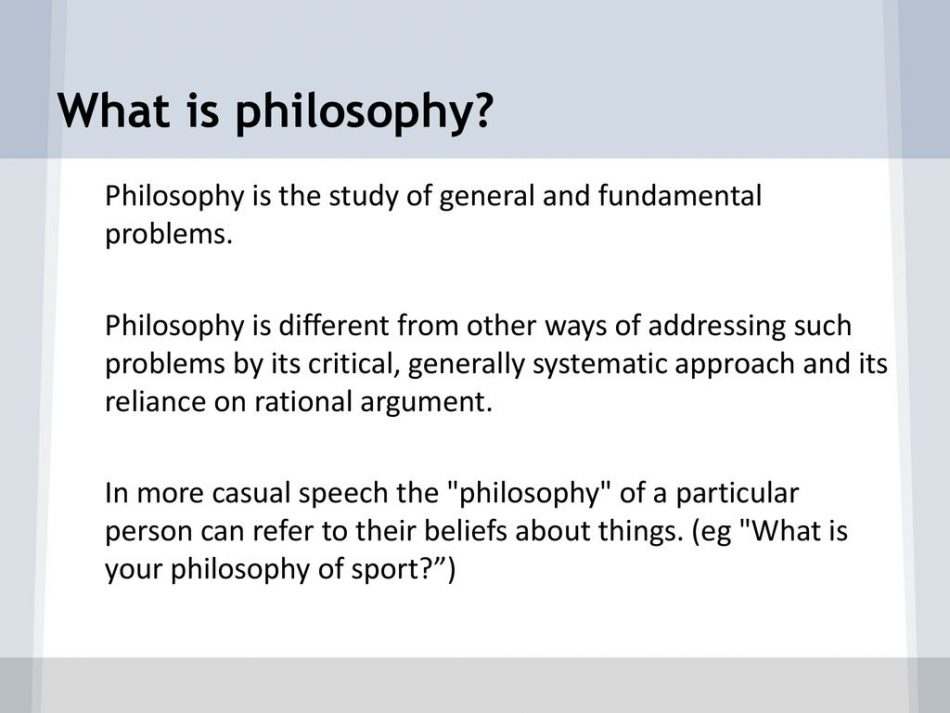
Philosophy is different from other ways of addressing such problems by its critical, generally systematic approach and its reliance on rational argument.
In more casual speech the philosophy of a particular person can refer to their beliefs about things. (eg What is your philosophy of sport )
Philosophy is a branch of study that involves examining fundamental questions about the nature of reality, knowledge, morality, and existence. It is a systematic inquiry into the nature of existence, reality, and human experience. Here are some key points about philosophy:
Broad Field: Philosophy encompasses a wide range of subjects, including metaphysics (the study of the nature of reality), epistemology (the study of knowledge), ethics (the study of morality), political philosophy, aesthetics (the study of beauty), and logic.
Examining Arguments: Philosophers seek to understand and evaluate arguments that attempt to answer fundamental questions about the world. They use logical reasoning, critical thinking, and careful analysis to explore these issues.
Historical Roots: Philosophy has a rich history dating back to ancient Greece, with many notable figures who have contributed to the field, including Plato, Aristotle, Descartes, Kant, and Nietzsche, to name a few.
Practical Implications: While philosophy may seem abstract and theoretical, it has practical implications in our lives. It helps us to clarify our values and beliefs, understand our place in the world, and make decisions that affect our lives and society.
Importance of Debate: Philosophers often disagree on fundamental questions, leading to lively debates and discussions. This allows for the exploration of different perspectives and the development of new ideas and insights.
Continuously Evolving: Philosophy is not a fixed body of knowledge but is continuously evolving as new questions and challenges arise. Philosophers continue to explore new ideas and questions, pushing the boundaries of our understanding of the world and our place in it.
10 Western Philosophy – Part 1 – Full Documentary
12 sep. 2019
11 Western Philosophy – Part 2 – Full Documentary
12 sep. 2019
12 Western Philosophy – Part 3 – Full Documentary
16 sep. 2019
13 Documentary – Western Philosophy, Part 1 – Classical Education
12 feb. 2015
14 Documentary – Western Philosophy, Part 2 – Classical Education
12 feb. 2015
15 History Of Western Philosophy Part 1/3
16 History of Western Philosophy Part 2/3
17 History of Western Philosophy Part 3/3
18 – What is Virtue Ethics?
19 – Virtue Ethics Part 1
20 – Virtue Ethics Part 2
21 What is Philosophy?
2 sep. 2011
22 Marxist philosophy: dialectical materialism
23 We DESTROY Strangers’ Cell Phones